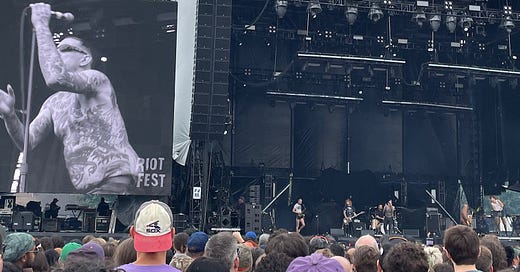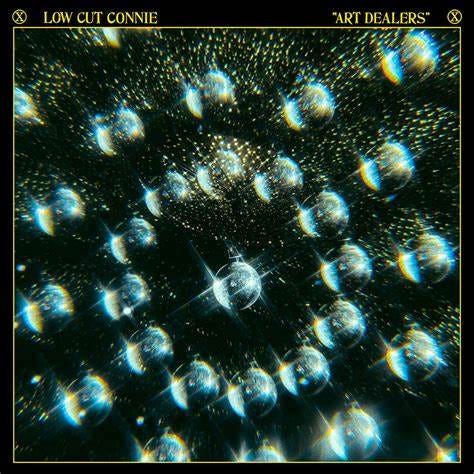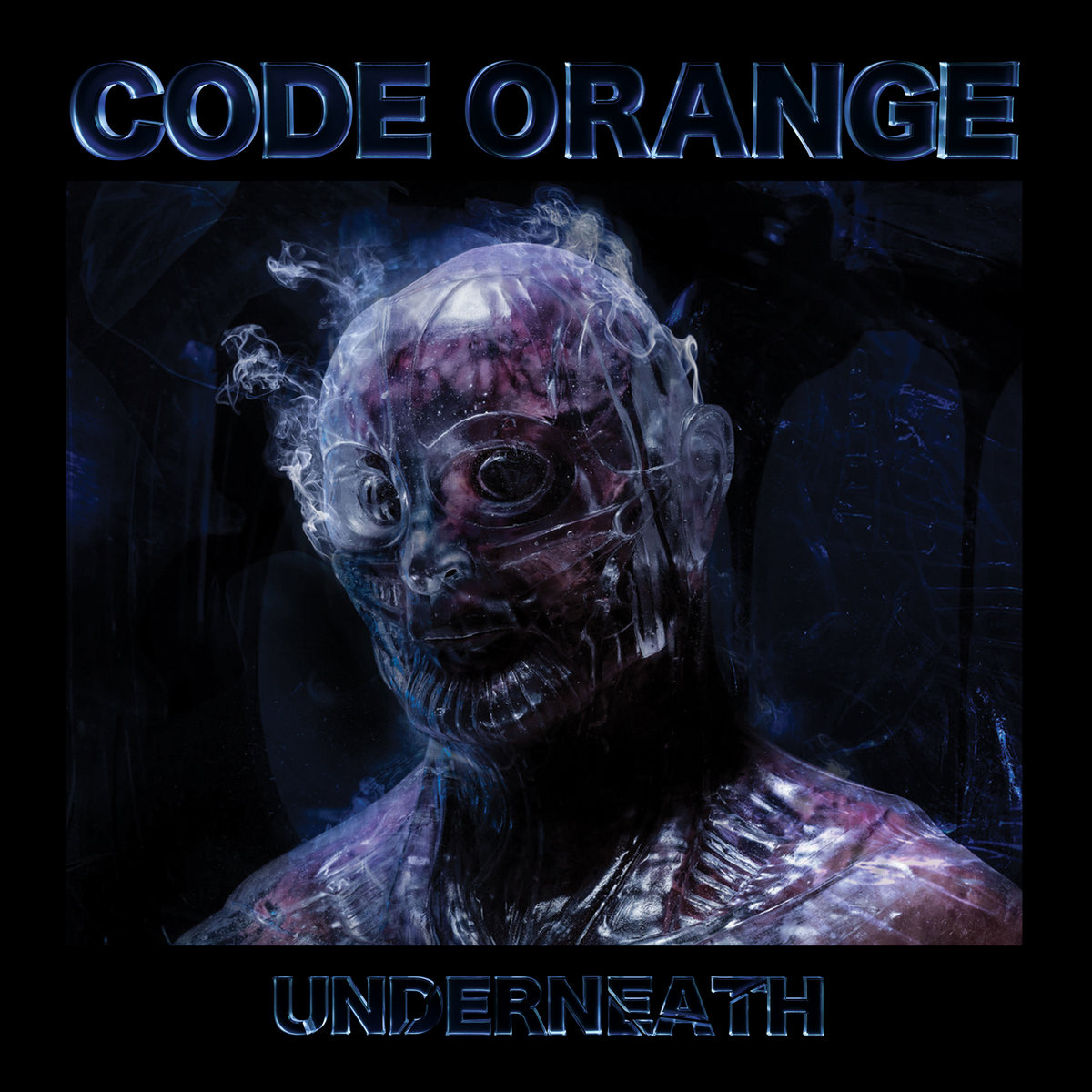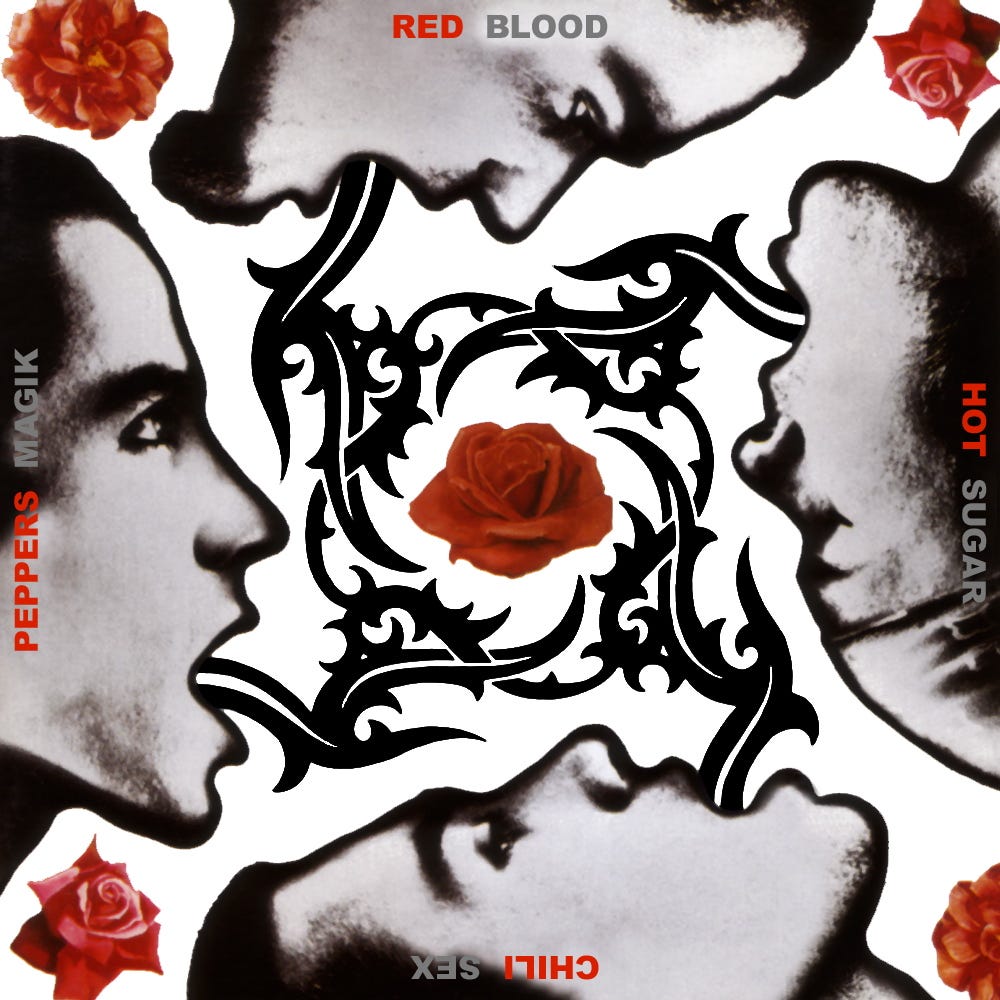Much has happened in the world since the last 3A6OG post in late September, and most of it tragic. There is not much to say other than we need music more than ever, both recorded and live. Hopefully some of the notes from the records below, even with a takedown of the beloved Chili Peppers album by OG Brad, can bring peace to a world that so desperately needs it, or at least a diversion from a world where it’s so painfully absent.
New album: Art Dealers by Low Cut Connie. Legacy rock bands are having a moment. Talking Heads’ movie Stop Making Sense was re-released in theaters. Indie rock fans over age 40 have been buzzing over the Let it Bleed version of The Replacements’ Tim. U2 opened the James Dolan/Irving Azoff-owned Sphere in Las Vegas. Bruce Springsteen was in the news for not-so-great reasons, having to postpone his latest tour until next year due to health concerns. Even the assisted living version of The Rolling Stones released a new album. While these stories haven’t garnered even one-tenth of the attention as where Taylor and Travis had breakfast this morning, they are still a sign that older rock bands are experiencing a mini-surge of interest. It’s appropriate that Low Cut Connie released their latest album, Art Dealers, during this moment.
The Philadelphia-based band Low Cut Connie is essentially singer/songwriter/pianist Adam Weiner and a rotating cast of musicians and backup singers. Musically, the band takes its influences across several decades and genres – classic rock, soul, R&B, folk, garage rock, early indie rock, alt-country, not to mention Weiner’s favorite artist, Prince. Low Cut Connie doesn’t act out classic rock karaoke like Jet or Greta Van Fleet. I think of them in the same way I think of The Gaslight Anthem’s The ’59 Sound – clearly showing their influences while paying homage, but doing so in a style that is updated for the present day.
Art Dealers is Low Cut Connie’s seventh studio album (the band also released an album of selections from Zoom shows they did during COVID called Tough Cookies: The Best of the Quarantine Broadcasts, featuring covers of songs by Neil Young, Donna Summer, Prince, INXS, Bob Dylan, and Grandmaster Flash). It’s one of the band’s strongest, and as Weiner has acknowledged in promotional interviews, Art Dealers, while not exactly a concept album, centers its theme around 1970s New York (where Weiner said he got his start as a piano player in LGBT-friendly bars) and the rise of art, music, and culture in the city during that decade. Weiner has specifically cited Lou Reed as a lyrical and spiritual influence on Art Dealers, and that influence comes across clearly.
Album opener “Tell Me Something I Don’t Know” kicks off with the backing vocals of “turn me on!” and leads into Weiner recounting his early days as a musician in New York, asking those around him to tell him about downtown in the ‘70s and the “frisky little hustlers moving down the line,” all over a rolling R&B influenced piano rhythm. Straight-up rocker “Sleaze Me On” is an ode to people like Weiner (and many others, including Lou Reed himself) who came to the city from bridge-and-tunnel land to express themselves artistically (“All the glitter in the world is made in a factory in New Jersey off of Exit 9 / That’s the place where I used to practice, you can read between the lines”). “Big Boy” is a driving pub rocker, while Weiner channels Springsteen on “Are You Gonna Run?”, the first single from Art Dealers.
The album’s theme of documenting pre-‘90s city life continues on garage rocker “Whips and Chains” (“I made a real bad bet last night at the OTB / Now a real bad bookie’s gonna throw the book at me”) and “Don’t Get Fresh with Me” (“If I give you a little show, then I know you’re gonna ask for more”). Weiner switches to falsetto for the emotional “Wonderful Boy,” a piano ballad that exudes loneliness. “Take Me to the Place” is a soulful rocker that pleads, “take me somewhere, I don’t even care / ‘Cause I need somebody to punch me in the face / And you’re the only one who’d dare.” “Call Out My Name” starts with a hint of ‘60s psychedelia before turning into another blast of soul-inspired rock.
“I Don’t Understand You” sounds like a mix of Motown-era girl groups and CBGB-era shambolic garage punk, a combination that absolutely works. The mid-tempo near-arena rocker “King of the Jews” might be Weiner’s most personal song on the album, as it directly references his own relationship with his Jewish faith and his life as a musician (“If you can’t learn the rules, good luck trying to change the groove / You gotta tweak your attitude, motherfuckers gotta pay their dues / But if you learn to read the room, you’ll be standing there like the king of the Jews.”)(The video for the song is a beautiful black and white reel Weiner donning t’fillin, or phylacteries, which observant Jews wear during most prayer services on their head and arm.”)
The title track is a piano-based power ballad that recounts all the lives lost when the city was ravaged by the AIDS crisis (“Losing my memory, moving so slow / Standing in the gallery, nothing to show”). The song is spiritually connected to Lou Reed’s “Halloween Parade” off his brilliant album New York. While Reed was witnessing the crisis in real time, Weiner views it from a distance. It doesn’t lessen the impact of the song or the emotions expressed, but it’s a little different to hear Reed sing about the friends he lost and how it affected him on a personal level, whereas Weiner’s track has a “how did we let this happen?” vibe. Both perspectives are valid and both hit hard. Finally, album closer “The Party’s Over,” an acoustic ballad, is mournful for a time that passed but optimistic for the future. “The golden days are over,” he sings, but “we’re gonna boogie on down the road.”
Low Cut Connie’s Art Dealers is a tremendous accomplishment. In an era of singles and playlists, it’s a cohesive album with a central theme, one that certainly appeals to this fellow former bridge-and-tunnel kid who was alive during this era of New York but too young to really experience it. I’m also a man in his 50s who still remembers turning on MTV 40+ years ago and having my mind blown by The Band’s “The Night They Drove Old Dixie Down” from The Last Waltz. Since then, at various times, I’ve gotten into punk, new wave, goth, indie, hip hop, funk, blues, ska, garage rock, etc., but I still have a soft spot for a band that can pull together multiple influences from previous eras and combine them into a regular old kick-ass rock record. Yes I’m biased, and yes this album speaks to me. Art Dealers is something we don’t get often in 2023 – a great new rock record. (Brian)
Album(s) from an upcoming/recent live show: Taking advantage of a newly empty nest (underscoring the “O” in 6OGs), I journeyed to Chicago last month to take in Riot Fest. It was a fantastic time with a great selection of bands and a positive vibe. Before I get to the highlights, I had two big disappointments. First, heavy morning rains led to the cancellation of the first two hours of Sunday, which included three of the bands I was looking forward to most – two shoe gaze bands, Nothing and Hotline TNT, and Just Mustard, an OG Brad recommendation.
The other disappointment was missing Insane Clown Posse. I’ve long been fascinated by the band and its cult-like following. Every painted-up Juggalos I saw increased my excitement to seeing them live. I slotted 20 minutes to see them—leaving Queens of the Stone Age early and missing the beginning of the Postal Service. Unfortunately, ICP came a half hour after their set time and I missed them completely. The word was they unironically put on quite an enjoyable spectacle.
I won’t say anything about the headliners. They were as you would expect: if you enjoy these bands, you’d have enjoyed their sets. That said, though I adore the Postal Service album, having the show as an album play seemed superfluous –what else are they going to play? Also, an album play show that relies so heavily on pre-programmed tracks really verges on karaoke. But I still loved it.
The highlights in no particular order for me were the following:
Viagra Boys – The Swedish punk band has a familiar formula of talky vocals with sarcastic lyrics over a groove—a la Art Brut, but their live set really brought out some dynamics you don’t get from their records. The bass tone was pumped up and the band settled into some amazing grooves. But the real revelation was their charismatic front man, Sebastian Murphy. Heavily tatted with a pendulous belly and a ubiquitous cigarette, he would belt out the lyrics, take a swig of beer, spew into the air, and, when it showered back on him, rub into his belly. It was mesmerizing.
Code Orange – Playing early in the day, I was surprised to read they were twice nominated for Grammys in the category of Best Metal Performance. (I guess since the initial Jethro Tull fiasco in 1989, no one has paid attention to that award.) Regardless, the band brought some chunky riffs, a few leg kicks, and a lot of energy—they ran around the stage like they were being chased by bees. Plus, I always appreciate a female lead guitarist laying the kind of riffage. Their earlier albums definitely bring it a lot harder, and they seem to have mellowed with age. A concerning sign is that in the year 2023, they have decided to collaborate with Billy Corgan. Yes, in 2023.
Turnstile –I’m not the biggest Turnstile fan, but you don’t turn down a chance to see them live. Their sets are undeniable. The band brims with energy, which the crowd reflects. The set was positively jubilant. Their core fans are probably a generation younger than me. Maybe that should make feel old, but it gave me joy to see the kids make other kids happy with their art.
Pool Kids – Wikipedia lists them as “math emo,” which I’m not sure who they offended to deserve that. Regardless, one of the most enjoyable parts of live music, particularly where much of the crowd is coming in with little familiarity with the band, is watching a band steadily draw in and win over the crowd. I don’t think I saw a group do it as well as Pool Kids. The music is pop but with sophisticated arrangements and tons of energy. Everyone left a fan.
Honorable mentions– Enola Gay (Irish noise rock – think Therapy? but heavier and nosier); Earth Crisis (I love super heavy bands that are also radical eco vegans); Dresden Dolls (I’m not sure what they are (vaudeville? I think there was a mime?) but it was entertaining with a cameo by Melissa Auf der Maur); Jehnny Beth (crazy energetic and intense electro-clash from the former Savages lead); Olivia Jean (exactly as what you’d imagine a goth rockabilly artist on Third Man Records to sound like). (Charles)
Album being rediscovered (at least 10 years old): Blood Sugar Sex Magik by the Red Hot Chili Peppers. During the pandemic, I did a series on Facebook of the 10 albums I disliked so much that they actually shaped my musical taste by defining what I never wanted to hear (this was in response to a Facebook craze of posting albums that had had a positive impact on your life; I wasn’t in the mood). This included an unsurprising list for people who knew/know me: Fleetwood Mac, Drake, Springsteen, the Eagles, Depeche Mode, etc. There were a lot of comments and “are you insane?” responses, but few were surprised at my choices.
The one I received the most questions about was my choice of this record by the Red Hot Chili Peppers (RHCP), the album that came out on the same day as Nevermind and defined many of the college experiences of the 6OGs and our peers. How could I dislike it so much, especially given the sounds it fused together and then inspired? So many hits on one album and the blueprint for much of what came after I – surely I couldn’t actually hate it? I mean, Flea is even in The Big Lebowski, one of my favorite movies of all time. That has to be worth something?
I was inspired to revisit this album by, of all things, my older son’s friends and by watching the Woodstock ’99 documentary. For my son’s friends, his cohort is the same age now as I was when this album came out, and a surprising number of them are massive RHCP fans: know all their albums, have seen them live, even read Anthony Kiedis’ 2004 autobiography (who remembered he even had one?). So in the name of music journalism, I thought I should go back and try again. What are they hearing that I never did?
And in the Woodstock ’99 documentary, it becomes clear that, the RHCP are, to use a Godfather reference (one of my other favorite movies of all time), the Don Barzini to Fred Durst’s Tataglia. While everyone blamed Tataglia for working with Sollozzo, leading to Don Corleone nearly being assassinated, Corleone figures out later that “It was Barzini all along.” So too our anti-heroes here – though Fred Durst has taken the fall in popular lore for the chaos at the festival, the documentary makes clear that the match was set, almost literally, by the RHCP deciding to play “Fire” at the start of their evening set on the closing night. Guess that makes Durst a pimp and Kiedis the ringleader. How did they pull that off and maintain a cleaner image?
The answer to both questions? I have no idea.
The core thing to say about an album as ubiquitous as this, such that it’s popular among teens 30 years after its release, is that it is hard to “rediscover” it, maybe especially when you don’t like it. It can just be hard to start over with any music, though I have done so a few times. But those cases – LCD Soundsystem and the Cure principal among them – were not bands I affirmatively despised, as much as just didn’t get.
On the other hand, when you despise an album and most of its songs are also everywhere all the time, it takes a level of self-awareness that I admit I do not possess to allow yourself to start over. In the end, I found myself gritting my teeth through the hits but discovering, to some degree, the songs I either didn’t know or had forgotten (“The Righteous & The Wicked” being the best of the bunch). I felt the same about them, for the most part – I think I can understand why this is popular; I just think it sucks.
There are a few key reasons:
It feels like the blame for me goes mainly to Rick Rubin, who has committed so many producer fouls in taking artists with something to say, both lyrically and sonically, and channeling them into a narrow band of “hits.” Despite everything going on, the songs all sorta feel the same, even the ballads, and they hit one cacophonous note with a basic tempo and structure. The production is slick, the sounds condensed, and the energy channeled into a narrow lane; maybe it’s an outgrowth of the gimmick Rubin suggested of having the band stay and record in Harry Houdini’s mansion, i.e. they were all just trying to get out and doing what he said. Rubin was, of course, on to something (with the music, not so much the Houdini mansion), and he has indeed been behind so many hits over the decades. But are they good? The Beastie Boys spent much of their career running away from the hits Rubin made for them, and I think every artist who has worked with him has paid a price for the hits he produced for them (other than Johnny Cash, but honestly, who else but Johnny Cash could mess up Johnny Cash?)
The music grooves at times, but it feels lost in the muddle of all of the sounds it’s trying to channel. At the time, there wasn’t really a mold for what it was, and unlike other records that craft a new direction from what has come before, this one just feels like it crumbles under the weight of the ideas and how you bring together rock, punk, funk, metal, and even elements of hiphop and pop. No doubt they are all super talented musicians, but on this record, I don’t feel it all come together as one. The tensions in the band during this time are well-known, and guitarist John Frusiciante was fired at the end of the tour for the record.
The writing is just terrible. The lyrics are either simplistic and boring (“Power of Equality” or “Under the Bridge” chief among them) or nonsensical (“Suck My Kiss,” “Mellowship Slinky in B Major” or “Funky Monks” being good examples). Neither of those things are fatal on their own, and surely no one turns to the RHCP for inspiration or their modern dose of Dylan, but when the music is falling in on itself, you need the lyrics to take you somewhere interesting or different, and they mostly don’t.
Kiedis can be a singer who delivers meaning and power, and that comes through at times, but also often feels lost in the same way that the music does. Is he singing, rapping, speak-singing, scatting, or some combo of the bunch? Like the lyrics, his voice isn’t distinct or strong enough to just carry the load. When it feels like he’s focused and really in sync with the song, then he can overcome the other stuff — the title track is the best example of this. The music and lyrics are a mess, but his performance is powerful in a way that just rarely comes through elsewhere. Again, I blame Rick Rubin for most of that.
In the end, the Chili Peppers have won, and I have lost. The album has sold more than 13 million copies worldwide; 7 times platinum in the U.S. alone. It’s all over “Best of the 90s” lists and even comes in at #310 on the Greatest 500 Albums List from Rolling Stone. They’re still touring and selling out stadiums and with a new generation actually listening rather than being dragged by nostalgic parents.
I’ll just say I’m like most motherf***ers: I don’t give a damn. (Brad)








Brad, you're a better man than I to give the RHCP album a revisit - and your verdict empowers me to continue avoiding it like the plague. Hope you get a chance to see Hotline TNT next time they come around, seriously good band - check out their new album Cartwheel to get hyped!